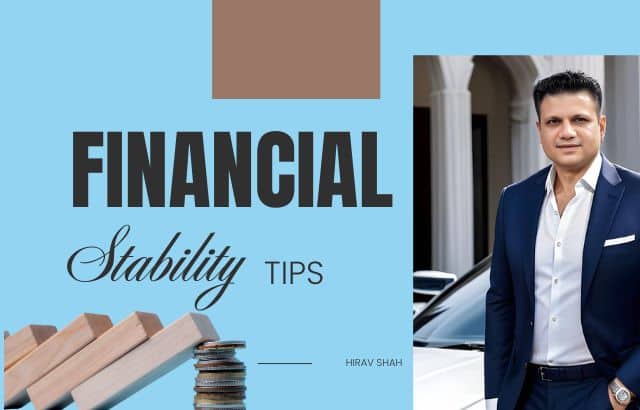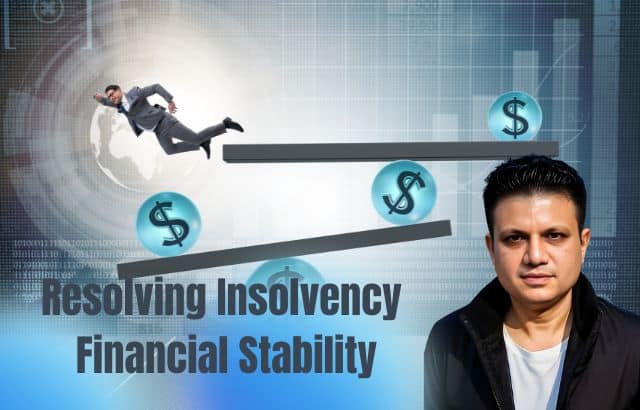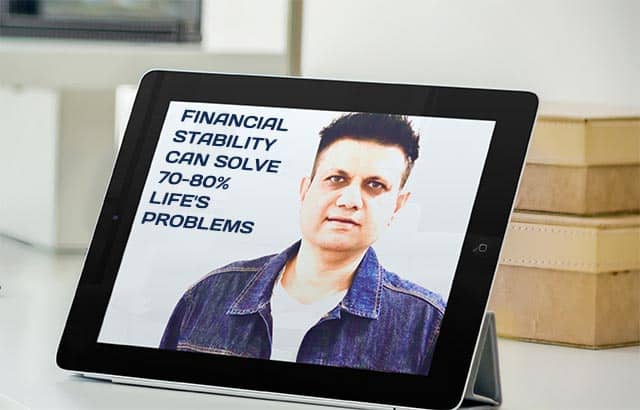Let’s face it—having enough money in the bank can solve a significant chunk of life’s problems. While it’s often said that “money can’t buy happiness,” it’s hard to deny that financial stability plays a pivotal role in our well-being. From securing a roof over your head to giving you the freedom to pursue your dreams, money undeniably affects almost every aspect of our lives.
In this guide, we’ll explore the vital role money plays in life, how it affects our mental health and relationships, and practical tips to develop a healthy financial mindset. Plus, we’ll bring in insights from business strategist Hirav Shah, who emphasizes the power of strategic financial planning.
Table of Contents
Understanding the Role of Money in Our Lives
The Psychology of Money: Your Relationship with Wealth
Money isn’t just a tool for buying things—it carries deep emotional weight. How we feel about money is influenced by a variety of factors: family upbringing, cultural norms, personal experiences, and even the societal values we live by. For some, money represents security and peace of mind. For others, it’s a symbol of success, power, or status.
Example: Think of two individuals—one who grew up in a financially unstable household and views money primarily as a source of security, and another who grew up in an affluent environment and associates money with success. These contrasting perspectives can lead to different attitudes and behaviors towards saving, investing, and spending.
Understanding your own money mindset is key to making healthier financial decisions and reducing stress. It’s also important to note that your relationship with money isn’t set in stone. You can reshape your attitudes through self-reflection and intentional efforts.
The Impact of Money on Mental Health
Financial issues can deeply affect our mental health. According to studies, financial stress is a leading cause of anxiety and depression. The constant worry about bills, debts, and future uncertainty can cause overwhelming stress.
On the other hand, achieving financial stability can significantly improve mental well-being. When you know you have savings for emergencies, a budget you can stick to, and financial goals in place, stress levels tend to decrease. You’ll feel more empowered, knowing you have a plan for the future.
Example: A person who has saved up a three-month emergency fund is likely to feel less anxious about unexpected expenses than someone living paycheck to paycheck.
Money and Relationships: Navigating Financial Conversations
Money can be a delicate topic in relationships. Whether it’s between spouses, family members, or even bu
siness partners, open communication about finances is essential. Financial stress can strain relationships, but addressing money matters openly and honestly can build trust and harmony.
Tips:
- Discuss shared financial goals (e.g., buying a home, traveling, saving for kids’ education).
- Establish clear boundaries and expectations around spending and saving.
- Use the help of a financial advisor or a relationship counselor to facilitate these discussions.
Example: Imagine a couple who wants to buy a house but hasn’t had the money talk. One person may be saving aggressively, while the other is spending freely. These differing financial approaches can lead to conflict. By having regular financial check-ins, they can align their goals and reduce tensions.
Developing a Healthy Relationship with Money: Tips and Strategies
A healthy relationship with money is about balance: enjoying what money can offer while not letting it control your life. Here are a few tips and strategies to develop a financially stress-free life:
1. Create a Budget and Stick to It
A well-crafted budget is your roadmap to financial success. It helps you track your income, understand your spending habits, and identify opportunities for saving. Setting a realistic budget helps eliminate financial anxiety by giving you control over your money.
Example Calculation:
Let’s say your monthly income is $5,000.
- Rent/Mortgage: $1,500
- Utilities: $300
- Groceries: $400
- Savings: $500
- Discretionary Spending: $1,000
By clearly allocating funds to each category, you reduce the likelihood of overspending and ensure you’re consistently saving.
2. Build an Emergency Fund
Unexpected expenses happen—car repairs, medical bills, or job loss. Having a buffer in the form of an emergency fund can prevent stress when life throws you a curveball.
How Much to Save: Aim for at least 3-6 months of living expenses. So if your monthly expenses are $3,000, your emergency fund should ideally be between $9,000 and $18,000.
3. Practice Gratitude and Mindful Spending
Sometimes, we focus so much on accumulating wealth that we forget the non-material things that bring us joy: relationships, experiences, and personal growth. Developing gratitude for what you have can shift your mindset away from constant consumption.
Example: Instead of buying the latest tech gadget, you might decide to invest in a memorable vacation with loved ones or take up a new hobby.
4. Seek Professional Help
It’s okay to not have all the answers when it comes to finances. If you feel overwhelmed or unsure about your financial situation, consider seeking help from a professional. A financial advisor or therapist can provide valuable guidance on everything from investing to creating long-term goals.
Hirav Shah’s Advice: Business strategist Hirav Shah emphasizes the importance of strategic financial planning in business. The same principles can be applied to personal finance. He suggests developing a clear roadmap for both short- and long-term financial goals and reviewing your plan regularly.
The Role of Business Strategy in Personal Finances
Hirav Shah, The Game Changer in business strategy, often says that success is all about strategic planning. When it comes to your finances, the same principle applies. You wouldn’t run a business without a solid plan—so why would you approach your personal finances any differently?
Example: A business might set quarterly goals, review performance, and adjust strategies as needed. You can apply a similar approach to your finances by setting personal financial goals (e.g., saving for a home), monitoring progress, and adjusting your budget as necessary.
Frequently Asked Questions (FAQs)
1. How much should I be saving each month?
While this depends on your income and financial goals, a good rule of thumb is to save at least 20% of your monthly income. If you have specific goals like buying a house or paying off debt, you may want to adjust this percentage.
2. What’s the best way to get out of debt?
Start by creating a budget and paying off high-interest debt first (like credit card debt). Once high-interest debts are under control, focus on other obligations like student loans or mortgages.
3. How do I start investing?
Start by educating yourself about different investment options. You can begin with low-risk options like index funds or ETFs. It’s advisable to consult a financial advisor to ensure your investment strategy aligns with your goals.
4. How can I keep financial stress at bay?
Develop healthy financial habits: create a budget, prioritize savings, and build an emergency fund. Seek professional help if necessary, and don’t hesitate to discuss money openly with your partner or family.
Final Thoughts
Money, though not the be-all and end-all of happiness, undoubtedly plays a crucial role in our mental and emotional well-being. By developing a healthy relationship with money, creating a financial plan, and using strategic tools, you can reduce stress and make decisions that align with your long-term goals.
Whether it’s paying off debt, saving for retirement, or achieving the financial freedom to pursue your dreams, the key is to approach money with intention, mindfulness, and a clear strategy.




















